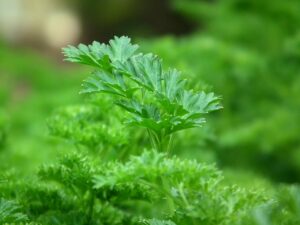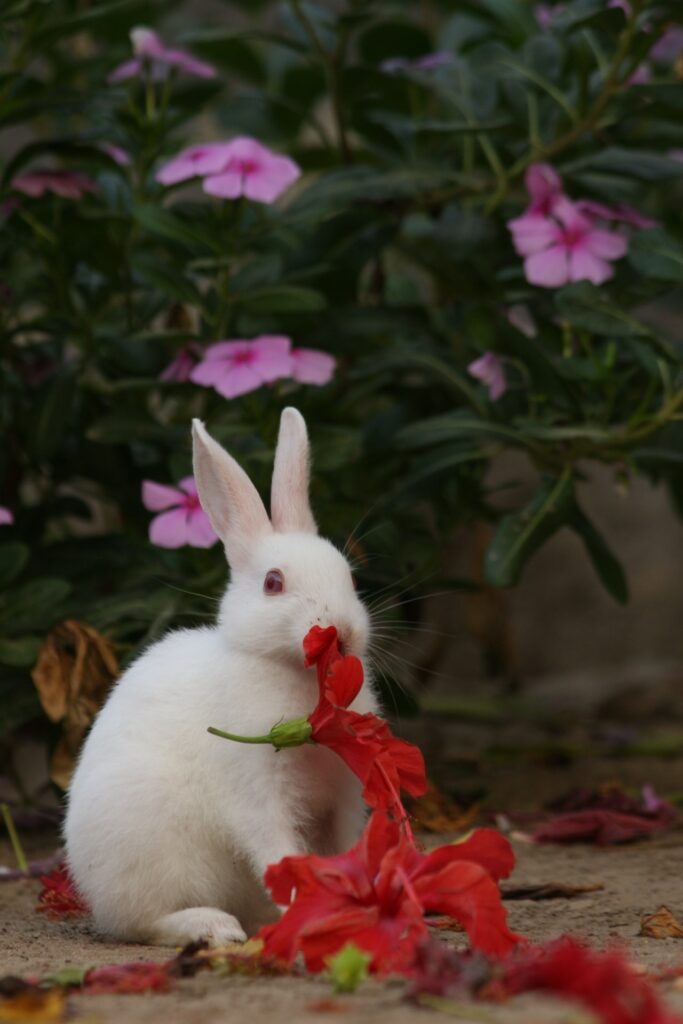Can Rabbits Eat Parsley? An Overview of the Nutritional Benefits and Risks of Including this Herb in a Rabbit’s Diet
Parsley is a common herb used in many recipes. It has beneficial properties, being high in fibre and antioxidants. It adds flavour to dishes, making them more enjoyable, and rabbits can eat parsley too.
What Is Parsley?
Parsley is a herb belonging to the same family of herbs as celery, carrots, and dill flavour. The leaves are edible and often used as a garnish or for salads or pasta. The stems are also edible, but they are stronger than the leaves. It usually has two types: flat-leaved parsley and curly-leaved parsley.
Nutritional Benefits of Parsley for Rabbits
Parsley contains essential vitamins and minerals such as vitamins A, C, K, folate, iron, and calcium. These nutrients can help keep your rabbit healthy by providing the necessary ingredients for its development. Additionally, parsley is high in fibre which can aid in digestion and help prevent gastrointestinal issues such as constipation or diarrhoea in rabbits.
Health Risks of Feeding Parsley to Rabbits
While there are some nutritional benefits of feeding parsley to rabbits, there are also some health risks associated with it as well. For instance, due to its high fibre content, feeding too much parsley can cause digestive upset in rabbits leading to possible diarrhoea or soft stools, which can be uncomfortable for them. Additionally, it may contain nitrates which can be toxic if consumed in large amounts over time by rabbits. Therefore it is important to feed only small amounts of parsley at a time and keep your rabbit from consuming large quantities at a time.
How Much Parsley Can You Feed Your Rabbit?
You should always feed your rabbit food in moderation, so you don’t give them too much or too little of something they need or d

According to experts, you should also ensure that you feed fresh parsley only (not dried) since dried plants tend to contain higher concentrations of nitrates, which are potentially toxic for rabbits if consumed in large quantities over time. Furthermore, you should never substitute fresh plants with dry ones because the nutritional value will be significantly lessened over time due to oxidation from air exposure, rendering it nutritionally insufficient for your pet bunny’s diet!
Can Rabbits Eat Parsley? – Pros & Cons
Pros:
- High in essential vitamins & minerals such as Vitamin A & C
- High dietary fibre content helps prevent digestive issues like constipation or diarrhoea
- Fresh leaves offer greater nutrient content than dried varieties
- Can add flavour & variety to other foods your rabbit may find boring
Cons:
- Too much consumption could lead to digestive upset/diarrhoea
- Contain nitrates which may be toxic if ingested over prolonged periods
- Dried versions have reduced nutrient value due to oxidation from air exposure
Conclusion
It is generally safe for rabbits to eat parsley, provided that you feed them small amounts regularly (no more than 2 tablespoons per day). Ensure that it’s fresh rather than dried, since this has a higher nutrient content. Additionally, it’s important to remember that although this plant has many health benefits, there can come risks when consumed excessively, so always make sure you’re aware of how much you’re giving them before doing so!
Look no further than furrr.co.uk! With our affordable pet insurance plans, you can rest assured that your rabbit will be taken care of in an unexpected emergency or illness. Plus, with our 24/7 customer service team available at all times, you can get questions answered quickly and easily.










